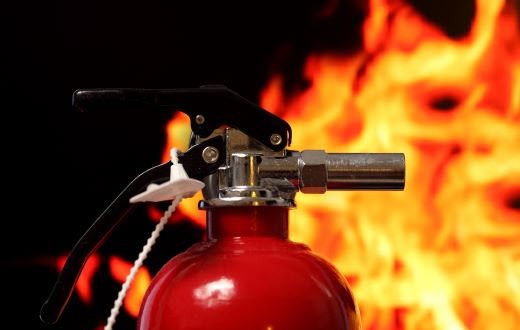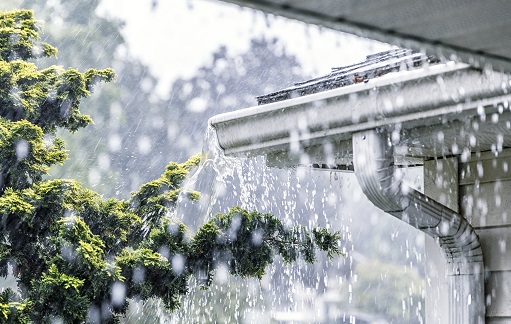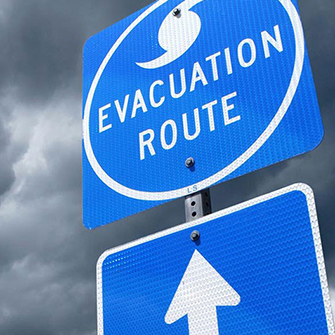Bushfire Personal Preparedness and Planning | Chubb
Bushfire Personal Preparedness and Planning
You can't stop the spread of bushfire, but you can limit its damage
If your home is located in a woodland setting, rural area or remote mountain site, you may be all too familiar with bushfires. While they often begin quietly, they can spread quickly, igniting brush, trees and homes in their paths. You can reduce your risk by following these tips to help protect your family, home and property from bushfire.
How to prepare before a bushfire
You may feel helpless against an encroaching bushfire, but there are plenty of things you can do to limit its damage. Here are some steps to follow if bushfire is a threat in your area.
- Install fire-resistant window treatments, smoke detectors and fire extinguishers throughout your home.
- Keep a garden hose that is long enough to reach the house and other structures on the property, as well as tools such as a ladder, shovel, rake, axe and water bucket.
- Install a backup generator in case electrical power is shut off.
- Keep your property free of leaves, needles, hanging branches and other debris. (This includes the gutters and roof.)

- Maintain a minimum of 4.5 metres between tree crowns, and trim tree limbs to 4.5 metres off the ground (or 1/3 total crown height, whichever is less). Thin and separate shrubs by a distance of at least twice their height. Remove any dead trees and vegetation from your property.
- Move firewood and flammable plants at least 10 metres away from your home.
- Maintain at least 30 metres of adequately watered space on level ground and 60 metres on sloped terrain around your house.
- Keep your grass short.
- Clear a 3-metre area around gas or oil tanks or around your barbecue area.
- Store valuable documents in a fire-resistant safe or an off-premise location.
- Post your house address so that it is readily visible from the street.
- Clear driveways as much as you can to accommodate large fire equipment. Make sure there is no flammable vegetation within 3 metres on both sides of the driveway and there are no overhanging obstructions within 5 metres.
- Have an emergency evacuation plan in place for your family and pets.
What to keep in mind for new construction
If you are building a new home or addition in a bushfire-prone area or rebuilding after damage from a bushfire, understand that choices made during the construction process can go a long way towards protecting your home and property from extensive damage. Here are some things to consider:
- Use fire-resistant roofing materials such as tile, composition shingles, metal or copper.
- Screen all vent openings with noncorrosive fine metal mesh.
- Finish exterior walls with noncombustible siding materials such as stucco or masonry.
- Box in eaves.
- Enclose areas under raised decks to prevent embers from blowing underneath, and keep them clear of flammable items.
- Construct decks of nonflammable materials.
- Use dual-pane or tempered glass windows with metal/aluminum frames.

What to do during a bushfire
Your top concern during a bushfire should be to keep yourself and your family safe. Everything else can be replaced. If conditions become too dangerous, you should immediately evacuate your home. Your Chubb homeowners policy will respond to covered losses. If you still have time to act and the fires have not yet threatened your safety, here are some things you can do to mitigate the damage:
- Turn on a light in each room to increase the visibility of your home in heavy smoke.
- Remove lightweight and/or non-fire-resistant window treatments and materials from around windows. Close windows, vents, doors and non-combustible coverings.
- Attach pre-cut plywood panels to cover exterior windows and glass doors.
- Open the fireplace damper and close fireplace screens.
- Seal attic and ground vents with pre-cut plywood or commercial seals.
- Set up a portable, independently powered pump.
- Shut off gasoline at the tank or natural gas at the meter, and turn off all pilot lights.
- Connect the garden hose to outside taps.
- Place lawn sprinklers on the roof and near above-ground fuel tanks.
- Wet the roof and shrubs within 5 metres of your home.
- Prop a ladder against the house so firefighters have easy access to the roof.
- Place combustible patio furniture in the house or garage.
- Move all flammable furniture to the center of the home, away from windows and glass doors.
- Continually check the roof and attic for embers, smoke or fire.
Do not waste water or jeopardize water pressure until burning embers fall around your home.
What to do after a bush fire
Once the fire is completely out and authorities say it is safe to return to your home, you may follow these steps to begin the cleanup process. Be sure to inspect the roof and exterior from a distance first for any sparks or embers as they could reignite.
- Wear sturdy shoes and long pants, and be on the lookout for signs of heat, smoke or sparks throughout your home for several hours—including the attic.
- Have a professional electrician check your household wiring before the current is turned back on.
- Take precautions while cleaning your property. Wear protective glasses or goggles to protect your eyes and wear gloves.
- Discard food, beverages and medicines that have been exposed to heat, smoke or soot.
- If you have a safe or a strong box, do not try to open it right away. It can hold intense heat for several hours.
- Watch for ash pits and mark them for safety. Ash pits are holes full of hot ashes created by burned trees and stumps.
- Avoid damaged or fallen trees, power poles or lines and downed wires. If trees and power poles are burned, they may be unstable.
- If you’re a Chubb policyholder and suffered damage due to a bushfire, email aus.propertyclaims@chubb.com to begin the claims process.
Common personal insurance coverages
Following a bushfire: Because most of Chubb's homeowner policies provide “all risk” coverage, physical damage caused by a bushfire may be a covered loss. We may also pay the following coverages (the base deductible or a special deductible may apply):
Additional Living Expenses: If a covered loss to your house, other permanent structure or contents makes the dwelling(s) uninhabitable, we may provide coverage for any reasonable increase in your normal living expenses, which could include:
- Temporary residence
- Hotels, meals, transportation, etc.
- Pet kennelling
- Replacing lost fair rental value
- Other increases to normal living expenses, as described in the policy

- However, power outages that do not result from a covered loss to your property will not trigger Additional Living Expenses.
- Temporary Precautionary Repairs: After a covered loss, we may provide coverage for temporary precautionary repairs to protect the home, contents or other structures from further damage.
- Debris Removal: We may pay for the cost to demolish damaged property and remove debris.
- Forced Evacuation: If you are forced to evacuate your home or other permanent structure as a direct result of a covered loss or a reasonable threat of a loss covered under the policy, we may cover the reasonable increase in normal living expenses for up to 90 days. This might include hotel and meal expenses or kennelling for pets.
- Food Spoilage: If you have coverage for Contents, we may cover the cost of spoiled food and wine caused by power interruption. Special coverage limits and deductibles apply in most states.
The content of this document is presented for informational purposes only and is not intended as a substitute for consultation with your insurance broker or for legal, engineering or other professional advice. Insureds are responsible for safety and risk control of their premises. Chubb may exercise its right to inspect premises from time to time under insurance policy terms and conditions, but it does not have any obligation to oversee or monitor an insured’s safety and risk control practices. Chubb is the marketing name used to refer to subsidiaries of Chubb Limited providing insurance and related services. For a list of these subsidiaries, please visit our website at www.chubb.com. Insurance provided by Federal Insurance Company and its U.S.-based Chubb underwriting company affiliates. All products may not be available in all states. Surplus lines insurance sold only through licensed surplus lines producers. Chubb Limited, the parent company of Chubb, is listed on the New York Stock Exchange (NYSE:CB) and is a component of the S&P 500 index. Chubb, 202 Halls Mill Road, Whitehouse Station, NJ 08889. All claims are subject to the terms, conditions and exclusions of the relevant product disclosure statement and/or policy. Please read this information carefully before making a claim and/or contact your broker or us for more information.

Ready to find out more?
Ready to experience Chubb's unparalleled comprehensive insurance solutions?
Speak to a broker today.